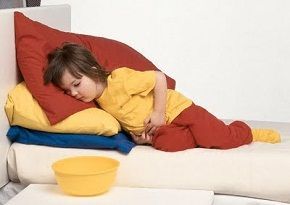IVF Children Face Lower Risk Of Mental Disorders Than Children Born Through Egg Stimulation Techniques

Researchers from Denmark have recently completed an analysis comparing the mental health of children who are naturally conceived and those who are conceived through artificial means. Their findings revealed that although children born through in vitro fertilization (IVF) showed no sign of diminished mental health, children born through ovulation or egg stimulation techniques were considered at risk of various mental disorders, such as autism and attention deficit hyperactivity disorder (ADHD).
A research team comprised of doctors, psychologists, and experts from three universities in Denmark, including Aarhus University, University of Southern Denmark, and the University of Copenhagen conducted the register-based study. A total of 600,000 Danish children born between 1995 and 2003 were enrolled for follow-up testing and were split into three groups: those conceived naturally, those conceived using medical treatment, and those born through IVF.
"In the study, we have taken account of the mother's age, education, smoking habits, mental history and other factors which may otherwise influence the risk. We can also discount the various types of fertility drugs which are given prior to becoming pregnant," explained lead researcher Bjørn Bay, M.D., Ph.D. fellow at Aarhus University.
"If we suspected that the drugs were having an impact on the children's mental development, the effect would also be traceable in the group of test-tube babies - and it's not."
Bay and his colleague failed to notice any kind of psychological or behavioral abnormalities in children born through the so-called test tube method. However, researchers did determine an increase in the risk of having some kind of mental disorder in children born through insemination treatments designed to stimulate ovulation or egg development.
"Beyond well-known factors such as age and smoking, it is important that we take a closer look at the differences between women who easily become pregnant and women who find it difficult. Until then, the message from the researchers is that parents who have been helped by science to start a family have no grounds for concern. Even though the number of children with mental problems is on the increase, the risk is still only very small," said Bay.
The Danish research team could only speculate as to what specifically causes this heightened risk of mental disorders in children born with the assistance of medical treatment. According to a recent study, around five million babies have been born through IVF or other assisted reproductive technologies (ART) since the first "test-tube baby" was born back in 1978.
"At the end of the day, there are very few cases. The key message is that by far the majority of children develop normally, and that we see no reason to intervene in the treatment and the methods currently being used," said Bay.
Source: Bay B, Hvidtjørn D, Mortensen E, Kesmodel U. Fertility treatment and risk of childhood and adolescent mental disorders: register based cohort study. BMJ. 2013.



























